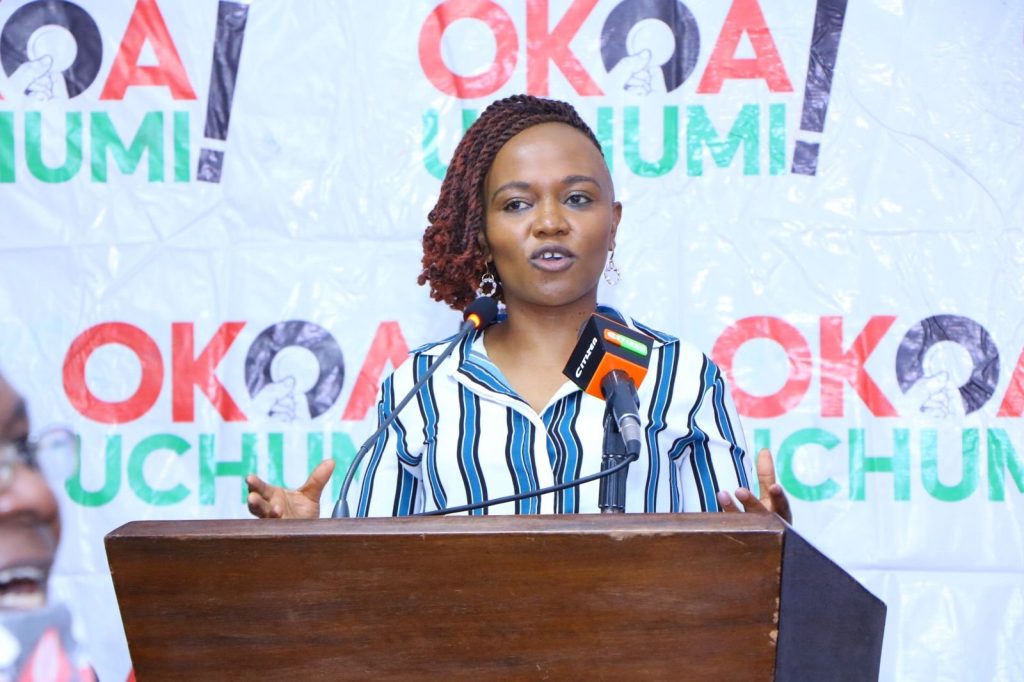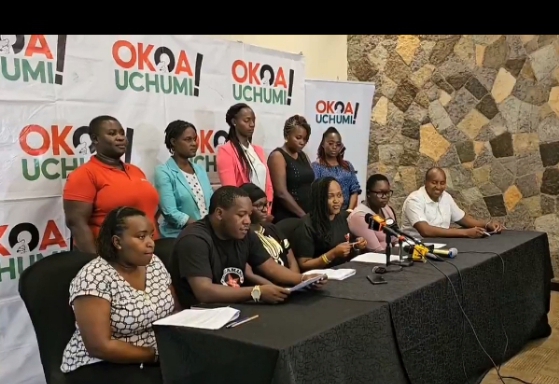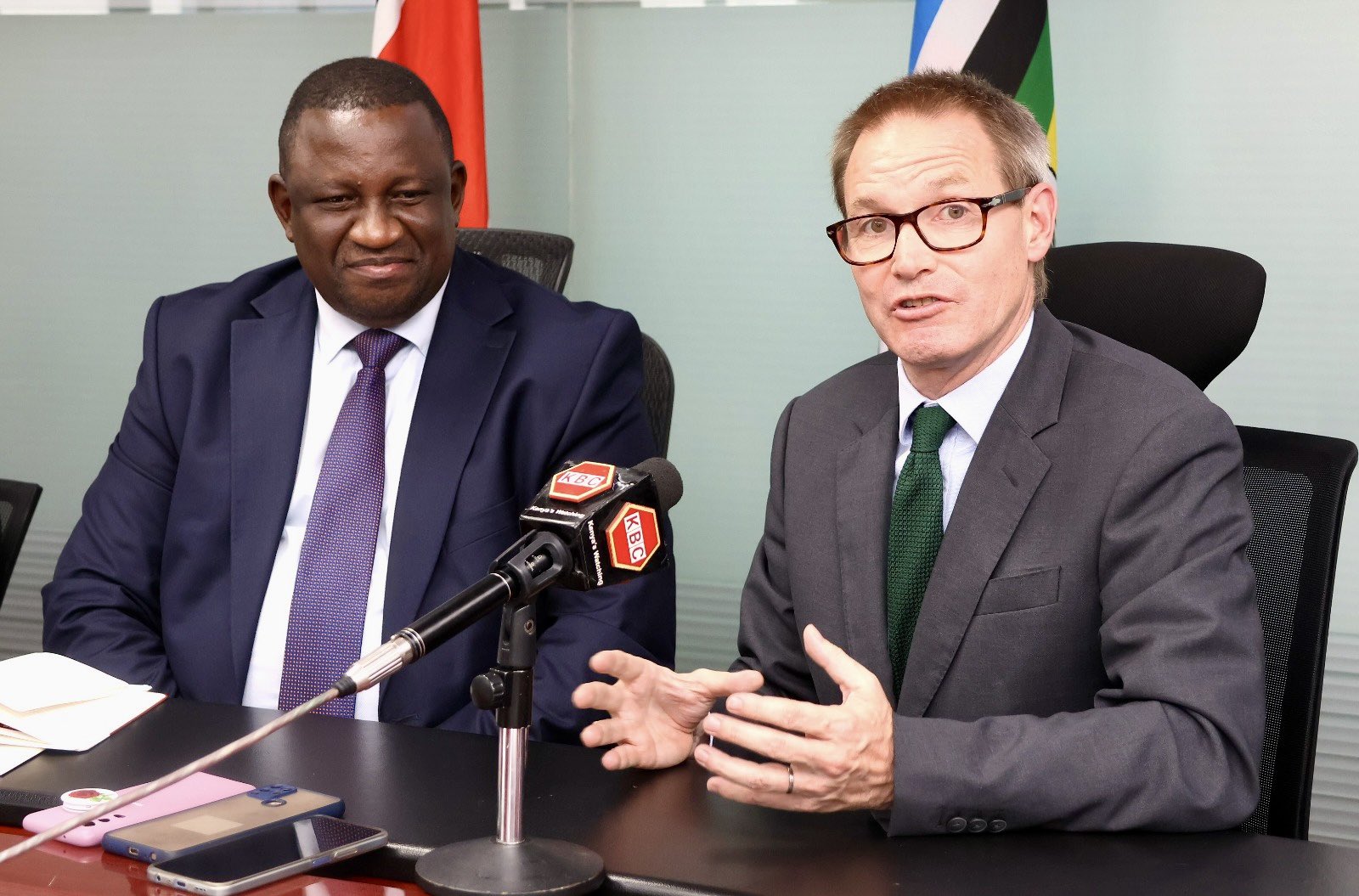By Eddah Waithaka
The Okoa Uchumi and a group of over 30 civil society organizations, have issued a stark warning about Kenya’s worsening public finance crisis.
In a statement released on Friday, Okoa Uchumi called for urgent action to address mismanagement of public resources, rising debt, and systemic corruption, which are pushing millions of Kenyans deeper into poverty.
The civil society’s statement comes as Kenya grapples with a fiscal deficit projected at Ksh. 831 billion for the 2025/26 financial year, representing 4.3% of GDP. However, Okoa Uchumi’s analysis suggests the deficit could soar to 5.1%, further straining an economy already burdened by unsustainable debt and declining public services.
“Four in every ten Kenyans are poor, and millions more are at risk of falling into poverty,” said Diana Gichengo, head of the Institute for Social Accountability (TISA), reading the statement.

“The government must act decisively to allocate resources wisely and spend prudently. Essential services in agriculture, education, health, and other critical sectors are deteriorating, shattering the dreams of millions for a dignified life,” she added.
Key Concerns Highlighted by Okoa Uchumi
Kenya’s debt-to-GDP ratio is projected to hit 63.6%, far exceeding the sustainable threshold of 55%. The coalition criticized the government’s reliance on domestic borrowing, which accounts for 82.3% of total borrowing.
Fiscal Deficit and Public Debt
This approach, they argue, crowds out private sector investment, raises interest rates, and stifles economic growth.
Read More On : https://africawatchnews.co.ke/echo-network-africa-foundation-enaf-unveils-rebranding-and-broadens-mission-for-womens-empowerment/
“Why are bank interest rates not coming down? Who benefits from these exorbitant rates?” they questioned.
They also pointed out that domestic borrowing through Treasury Bills and Bonds incurs interest rates above 8.94%, compared to concessional external loans at 2-3%. Worse, up to 30% of the budget may be lost to corruption, indirectly funding graft through domestic borrowing.
Inconsistent Budget Figures
Okoa Uchumi raised alarms over inconsistencies in the 2025 Budget Policy Statement (BPS) and Medium-Term Debt Strategy (MTDS). For instance, conflicting expenditure figures in the BPS show a variance of Ksh. 73 billion.
The coalition also criticized the use of inflated nominal GDP figures to compute the fiscal deficit, questioning the government’s intentions.
Unrealistic Revenue Projections
The government’s revenue target of Ksh. 2.83 trillion is overly ambitious, according to the coalition. They warned that this could lead to additional taxation or borrowing, further burdening already struggling Kenyans.
“Employers and employees cannot shoulder more taxes. The government must live within its means,” the statement read.
Governance and Transparency
The removal of key recommendations from the MTDS 2025, such as the independence of the Public Debt Management Office (PDMO) and monitoring of State-Owned Enterprises’ debt, has raised serious concerns.
Okoa Uchumi demanded transparency in debt management, including the publication of debt agreements and a clear roadmap for reducing Kenya’s debt burden.
Declining Sectoral Allocations
The coalition criticized the reduction in allocations to critical sectors like agriculture and health. Agriculture’s share of the national budget has dropped to 3%, far below the 10% target set by the Maputo Declaration.
Similarly, health sector allocations remain below the 15% target of the Abuja Declaration, despite an increase triggered by the withdrawal of USAID and other grants.
Auditor General’s Report Exposes Wastage
The coalition cited the Auditor General’s report, released on March 4, 2025, which revealed massive wastage and loss of public resources.
Key findings include: Social Health Insurance (SHI) and Social Health Authority (SHA). Critical deficiencies in implementation, including a Ksh. 104.8 billion IT digitization system lacking transparency and government control.
Hustler Fund-A 64% non-performing loan rate, totaling Ksh. 8.7 billion, and instances of double loan issuance and underage beneficiaries.
Irregular Compensation- Unauthorized allocations and court awards draining public funds. “The Auditor General’s report confirms our worst fears: the problem is not revenue but expenditure, including budgeted and legislative corruption,” Gichengo stated.
Okoa Uchumi further urged the government to take immediate steps to address these issues. Cutting wasteful expenditure and curbing corruption is one of the measure they suggested while also they urged the government to ensure they have realistic revenue projections and reduce the tax burden.
“Kenya cannot afford to continue on this path. The time for action is now,” the coalition concluded.
Read More Stories At: https://africawatchnews.co.ke/







